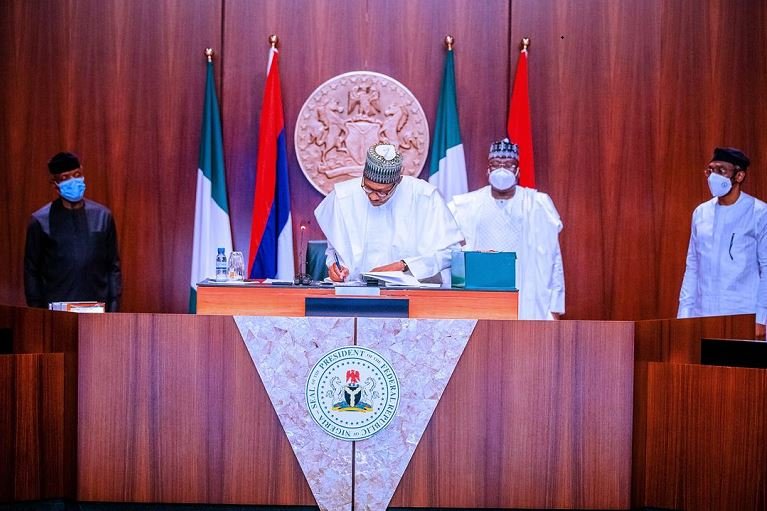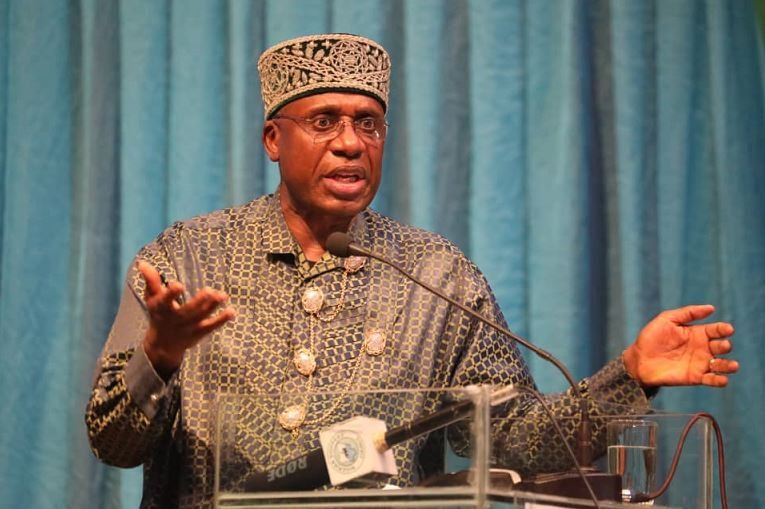Nigeria’s President Muhammadu Buhari has signed into law the 10.8 trillion naira revised 2020 budget passed by lawmakers last month on Friday.
National Assembly in June passed the budget, which was revised as part of an effort by the government to tackle the new coronavirus pandemic and low oil prices.
Finance Minister Zainab Ahmed also on Thursday held talks with lawmakers during which she provided details of a framework for the government’s 2021-2023 spending plan, which she said she plans to submit to parliament later this month.
The benchmark price for oil for the 2021 fiscal year was pegged at $35, and then $40 for 2022 and 2023, respectively, according to a statement issued by the office of the leader of the Senate, parliament’s upper chamber.
The framework is used to calculate the government’s budget.
Oil production was placed at 1.86 million barrels per day (mbpd) for 2021, 2.09 mbpd for 2022, and 2.38 mbpd for the 2023. The exchange rate was set to remain at 360 naira per dollar.
Nigeria, the top oil producer in Africa, is heavily reliant on crude oil sales which make up around 90% of foreign exchange earnings.











